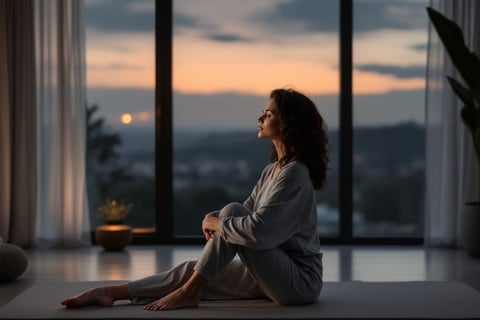Evening Recovery Protocol
How you end your day is just as important as how you start it. A proper wind-down routine ensures quality sleep and mental relaxation.
Introduction
How you end your day is just as important as how you start it. An effective wind-down routine promotes better sleep, reduces stress, and fosters mental relaxation. This protocol is tailored for those seeking to escape toxic societal pressures and craft a healthy lifestyle centered around intentional habits.
The Science of Evening Recovery
Evening routines play a vital role in optimizing physical and mental health:
Improved Sleep Onset: Relaxing evening activities, such as listening to music or reading, reduce mental stimulation, leading to quicker sleep onset
(Hauri, 1969).Enhanced Emotional Recovery: Practices like mindfulness and relaxation mitigate stress, contributing to better emotional balance
(Parker et al., 2020).Better Sleep Quality: Evening relaxation exercises, such as progressive muscle relaxation, improve overall sleep quality and mental health
(Sun et al., 2013).
Steps to Optimize Your Evening Routine
a. Disconnect from Devices
Limit screen time 1–2 hours before bed to reduce blue light exposure, which suppresses melatonin production (Leichtfried et al., 2015).
b. Engage in Relaxation Techniques
Practice mindfulness or progressive muscle relaxation for 10–20 minutes to reduce stress and improve mental clarity (Smith et al., 2007).
c. Create a Comfortable Environment
Dim the lights, maintain a cool room temperature, and use calming scents like lavender to signal your body it's time to wind down (Ozkan & Rathfisch, 2018).
d. Incorporate Evening Walks
Gentle evening walks in fresh air improve emotional well-being and sleep quality (Polunina & Tsinis, 2022).
e. Avoid Stimulating Activities
Refrain from consuming caffeine, engaging in vigorous exercise, or doing mentally demanding work close to bedtime to prevent sleep disruptions (Hauri, 1969).

